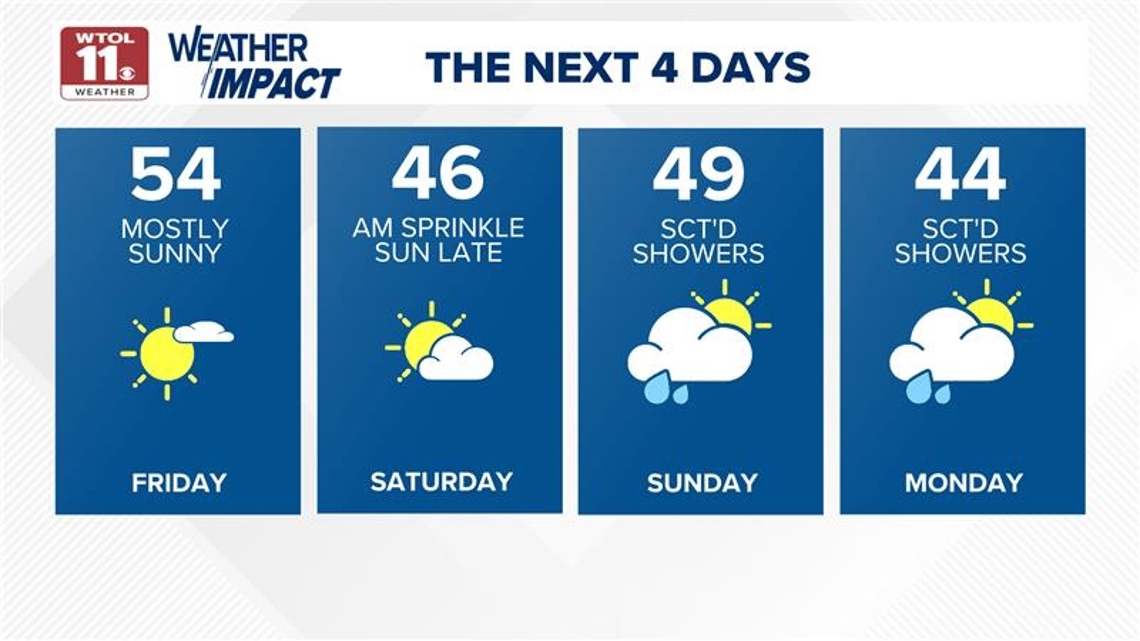Little Britain Cancelled: Gen Z's Unexpected Obsession Explained

Table of Contents
The "Ironic Appreciation" Phenomenon
Gen Z's engagement with Little Britain often stems from what can be described as "ironic appreciation." They're not necessarily condoning the show's problematic elements, but rather viewing it through the lens of satire and meme culture. The show's dated humor and undeniably controversial aspects have become fodder for memes and ironic commentary, transforming its flaws into a source of amusement.
- Little Britain's characters as meme templates: Characters like Daffyd Thomas, the only gay in the village, and Lou Todd, the perpetually hapless and somewhat dim-witted character, have become readily recognizable meme templates, frequently appearing in humorous edits and reaction videos.
- The use of clips in ironic TikTok videos and social media posts: Short, out-of-context clips from Little Britain are constantly circulating on TikTok and other platforms, often used to highlight the absurdity of the show's humor or to ironically comment on current events.
- Gen Z’s understanding of historical context and changing social norms: Gen Z viewers often acknowledge the show's problematic aspects, but their understanding of the historical context in which it was created allows them to view it with a more nuanced perspective, recognizing the evolution of social norms and sensitivities.
- The difference between appreciating the show’s comedic style and condoning its problematic elements: It’s crucial to distinguish between appreciating the show's comedic style, its sharp writing and memorable characters, and condoning its offensive elements. Gen Z's engagement often falls into the former category, using the show's material ironically rather than approvingly.
Nostalgia and a Renewed Interest in 2000s Culture
Nostalgia plays a significant role in driving Gen Z's interest in Little Britain. This generation, having grown up in the age of streaming services, is discovering and rediscovering content from previous decades. The show represents a specific slice of 2000s British culture, providing a sense of connection to a past they weren't directly a part of. This is part of a broader trend of Gen Z's fascination with 2000s trends, music, and fashion.
- The appeal of "classic" TV shows for a younger generation: For many Gen Z viewers, Little Britain offers a glimpse into a "classic" TV show, presenting a different comedic style than what they're accustomed to today.
- The novelty of discovering older content through streaming platforms: The ease of access to older television shows through streaming services allows younger generations to easily explore and discover content they may have otherwise missed.
- The influence of social media in spreading nostalgia-driven trends: Social media platforms are crucial in amplifying nostalgia trends, with viral posts and discussions driving renewed interest in older shows and cultural touchstones.
- Examples of other 2000s shows experiencing a Gen Z revival: Little Britain's resurgence mirrors similar revivals experienced by other 2000s shows, highlighting a broader trend of rediscovering and reinterpreting older media.
Re-examining the Show's Controversial Aspects
Little Britain is not without its significant controversies. The show has faced extensive criticism for its portrayal of marginalized groups, particularly its use of blackface and its often insensitive depictions of transgender characters. These aspects are undeniably problematic and reflect the vastly different standards of cultural sensitivity that existed during the show's original run.
- Specific examples of controversial characters and sketches: Many sketches featuring characters in blackface or those with stereotypical portrayals of LGBTQ+ individuals have drawn intense criticism and rightly so.
- Analysis of the criticism surrounding the show's portrayal of various groups: The criticisms leveled against Little Britain are valid and reflect the ongoing discussion about representation and inclusivity in media.
- The evolving understanding of cultural sensitivity and representation: The standards for cultural representation have evolved significantly since Little Britain aired, highlighting the importance of continuous dialogue and education regarding sensitive topics.
- The importance of critical engagement with media, even when enjoying it ironically: Even when appreciating a show ironically, it’s crucial to engage with it critically, acknowledging its flaws and the harm its problematic elements may have caused.
The Impact of Social Media Algorithms and Viral Trends
The role of social media algorithms and viral trends in Little Britain's resurgence cannot be overstated. Platforms like TikTok, with their powerful recommendation engines, have the ability to amplify niche content and introduce it to a vast audience. Specific clips and sketches from the show have gone viral, leading to a snowball effect of increased interest and engagement.
- How TikTok's algorithm promotes niche content: TikTok's algorithm excels at surfacing unexpected and niche content, leading to the discovery of older shows like Little Britain by a younger demographic.
- The influence of viral trends and challenges on media consumption: Viral trends and challenges on social media can significantly influence media consumption habits, introducing viewers to content they may not have otherwise encountered.
- The power of social media in shaping cultural conversations: Social media platforms play a significant role in shaping cultural conversations, amplifying discussions surrounding controversial topics like Little Britain’s problematic elements.
- Analysis of specific Little Britain-related viral trends on TikTok and other platforms: Specific viral trends involving clips from the show have been instrumental in driving its newfound popularity among Gen Z.
Conclusion
Gen Z's unexpected obsession with Little Britain is a complex phenomenon rooted in a combination of factors: ironic appreciation for its dated humor, a wave of nostalgia for 2000s culture, critical engagement with its undeniably controversial aspects, and the powerful influence of social media algorithms and viral trends. Understanding this multifaceted relationship sheds light on the evolving dynamics of media consumption, cultural shifts, and the ever-changing landscape of online engagement. What are your thoughts on Gen Z's unexpected obsession with Little Britain? Share your perspective in the comments below!

Featured Posts
-
 Is Blake Lively Feuding With Taylor Swift And Gigi Hadid Family Rallies Around Actress
May 22, 2025
Is Blake Lively Feuding With Taylor Swift And Gigi Hadid Family Rallies Around Actress
May 22, 2025 -
 Bps Future Ceos Strategy For Doubled Valuation And Continued Uk Listing
May 22, 2025
Bps Future Ceos Strategy For Doubled Valuation And Continued Uk Listing
May 22, 2025 -
 Recent Drop In Toledo Gas Prices Analysis And Outlook
May 22, 2025
Recent Drop In Toledo Gas Prices Analysis And Outlook
May 22, 2025 -
 Analyzing The Reasons For Core Weave Inc Crwv Stocks Recent Strong Performance
May 22, 2025
Analyzing The Reasons For Core Weave Inc Crwv Stocks Recent Strong Performance
May 22, 2025 -
 Mntkhb Alwlayat Almthdt Thlathy Jdyd Tht Qyadt Bwtshytynw
May 22, 2025
Mntkhb Alwlayat Almthdt Thlathy Jdyd Tht Qyadt Bwtshytynw
May 22, 2025
